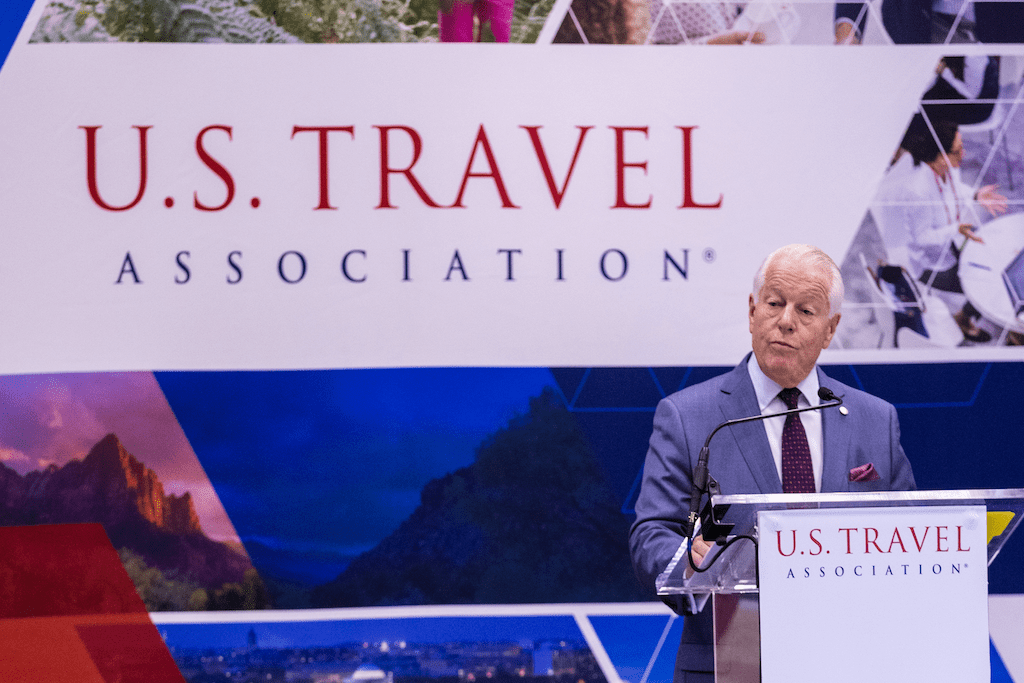U.S. to See 6 Percent Drop in International Inbound Travel Over Next 3 Months

Skift Take
The U.S. Travel Association forecasted that the nation will see a 6 percent year on year drop in international inbound travelers over the next three months. The prediction comes from the the latest instalment of its Travel Trends Index.
The drop is the sharpest in the index's five year history, and would be the biggest drop in such arrivals since the 2008 financial crisis. The travel economists from Oxford Economics who compile the report warned that the impact from coronavirus is likely to worsen when data becomes available for February, as this report only captures data from January.
U.S. Travel Association CEO Roger Dow said in a statement that he believes the decrease isn't entirely necessary.
“A big part of the coronavirus narrative is about whether it’s safe to travel,” Dow said, “but it’s important to keep in mind that the restrictions and warnings are highly specific to countries where there have been pronounced outbreaks. Right now there is absolutely no official guidance that people need to be reconsidering travel in the U.S.”
Get the Latest on Coronavirus and the Travel Industry on Skift's Liveblog
That said, the U.S. has issued numerous travel advisories to other nations, including advising against all travel to China, and a level three warning — meaning "reconsider travel" — for U.S. citizens going to Italy. It also banned foreign nationals who recently visited China from entering the U.S. In late February, China responded by advising its citizens not to travel to the U.S., a move that has been seen as largely symbolic given the restrictions already in place.
Dow added that beyond basic public health measures like hand-washing, staying home if you're sick, and covering your cough, there is no reason to alter US-bound travel plans.
“Obviously the traveling public should be exercising caution just as they would for the average flu season,” Dow said. “But for the many of us who have upcoming plans to attend a convention or meeting or go on a family vacation, public health officials have repeatedly said there is no cause to alter those U.S.-based plans at the moment.”
For the duration of the outbreak, the World Health Organization has not advised widespread travel and trade restrictions as necessary, noting that "restricting the movement of people and goods during public health emergencies is ineffective in most situations and may divert resources from other interventions." On Feb. 29 it updated its guidance to note that individuals who are sick, elderly, and/or with chronic or underlying conditions should avoid travel to affected areas, meaning "those countries, provinces, territories or cities experiencing ongoing transmission of the [virus], in contrast to areas reporting only imported cases."
It adds that travelers returning from affected areas should self monitor for symptoms for 14 days, and contact health authorities by phone if symptoms develop.




